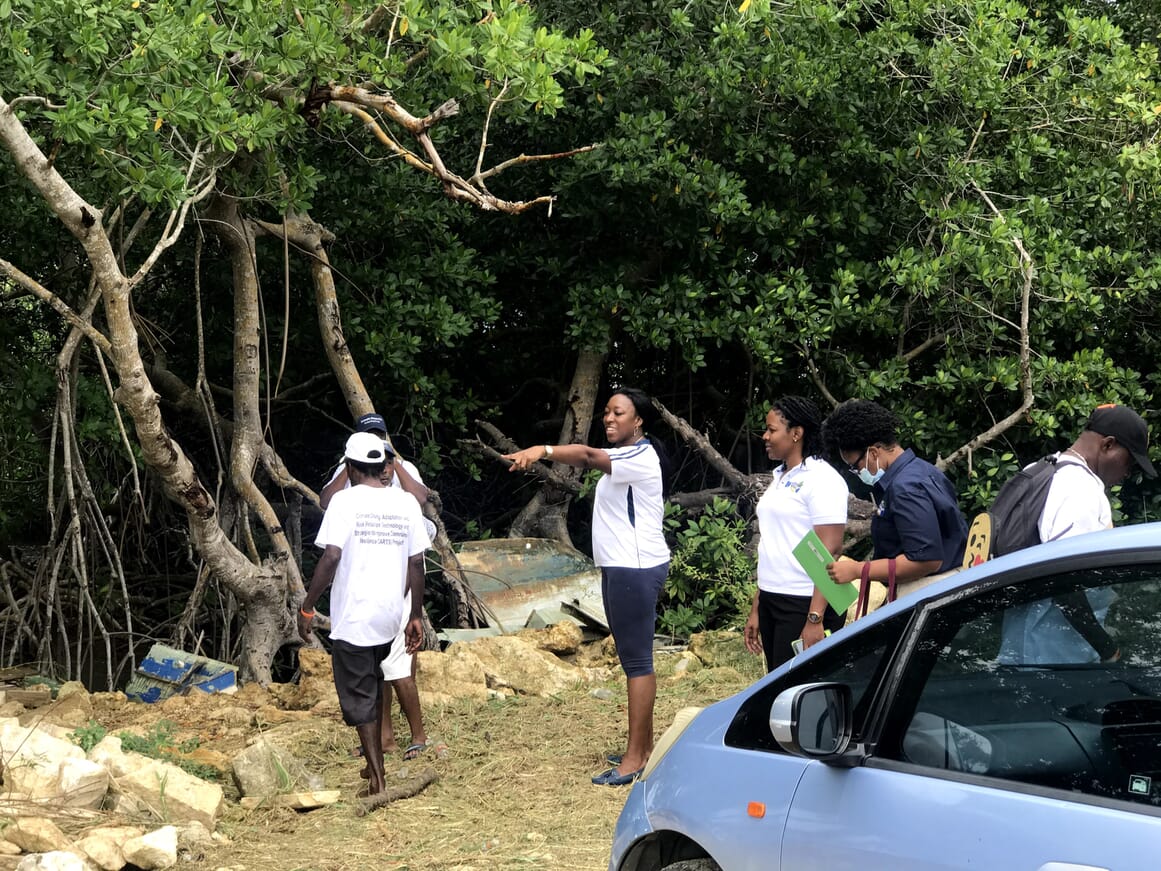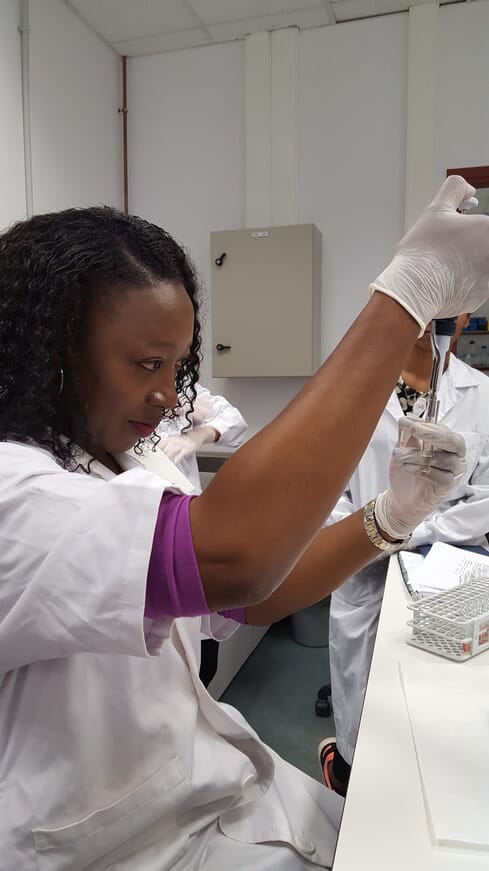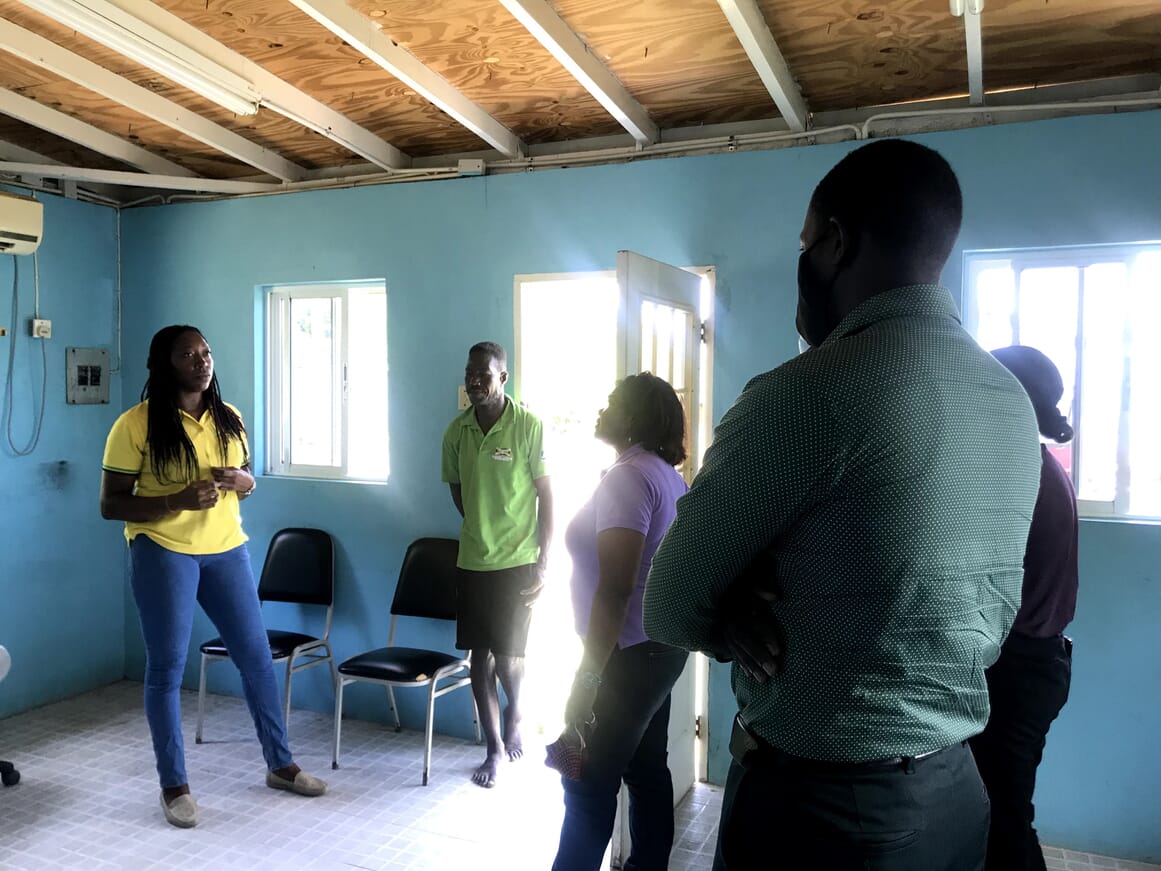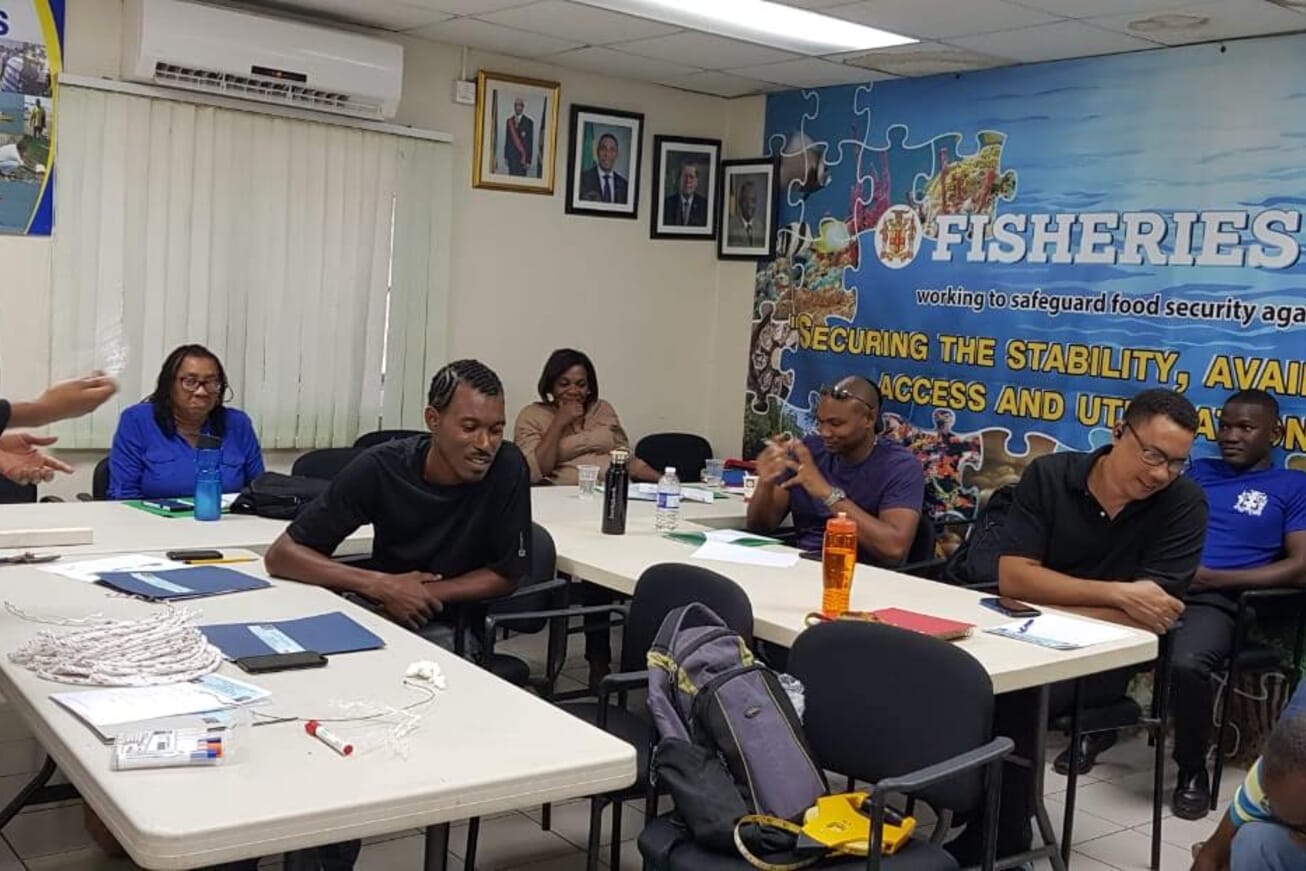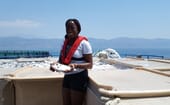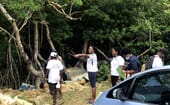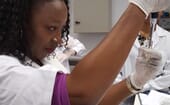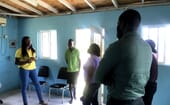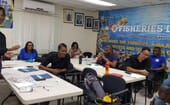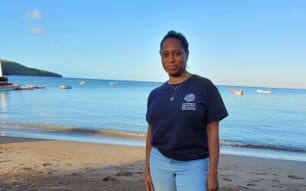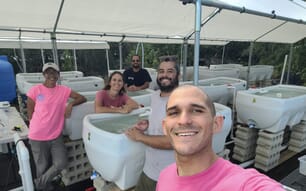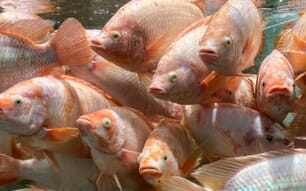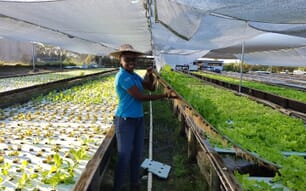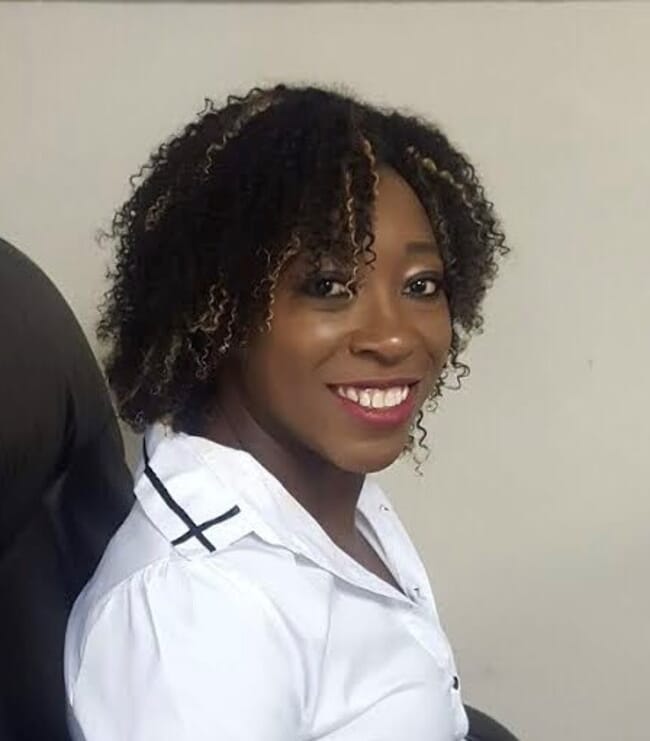
Gray worked in the Ministry of Agriculture and Fisheries as an extension officer, providing technical support such as training, on/off farm consultation and site feasibility assessments to new and established aquaculture producers
Briefly describe your aquaculture career
After completing an associate of science degree in aquaculture at Hillsborough Community College in Florida, I gained employment working on at a newly-built shrimp farm in Jamaica. I later worked at the aquaculture branch of the Ministry of Agriculture and Fisheries, in extension services, providing technical support such as training, on/off farm consultation and site feasibility assessment to new and established tilapia, ornamentals and oyster farmers. During this time I completed a BSc in environmental science at the college of agriculture science and engineering (CASE) in Jamaica and an Erasmus Mundus joint masters in aquaculture environment and society in collaboration with three universities based in Scotland, Greece and France.
Can you summarise your current work?
In am currently a Marie Curie Fellow pursuing my PhD studies at University College Cork, in Ireland. My research explores how aquaculture is presently incorporated into governance systems, and especially in marine spatial plans, across Europe. Policies and legislation can be fragmented across states; so by understanding what exists and where the gaps are, especially concerning the environmental and social aspects of aquaculture, I can begin to make recommendations on how to plan for future aquaculture development.
How will your work contribute to the development of aquaculture in Jamaica and the Caribbean region?
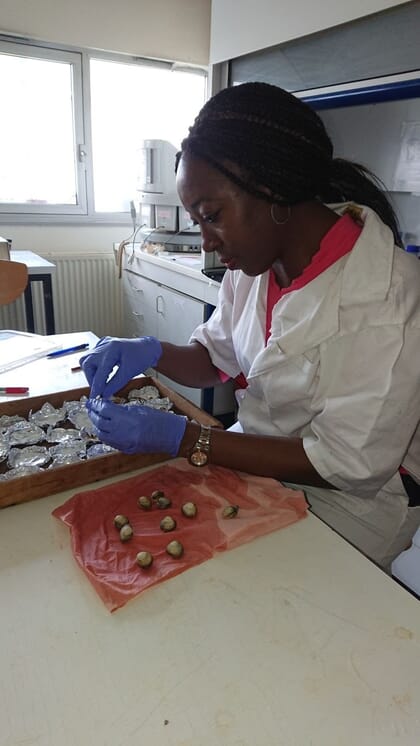
Jamaica and other parts of the Caribbean need to create a workable governance structure to support their aquaculture industries
One of the challenges to aquaculture growth in many countries – including Jamaica and the Caribbean – is the inadequate or bureaucratic aquaculture policies and regulations or even a strategic framework for aquaculture development.
Knowledge is power, and what I am gaining through my PhD is knowledge of how aquaculture is regulated, particularly in countries with high aquaculture production. This knowledge can be useful in developing aquaculture policy guidelines within the Caribbean. The way aquaculture is governed contributes to aquaculture growth or restriction.
What do you enjoy most about your work?
There is never a dull moment. There are so many opportunities to have a wide range of experiences. From working in the lab, to farms, and with a variety of people with different backgrounds, education and experiences from all over the world. I especially love to travel to various countries to participate in aquaculture projects.
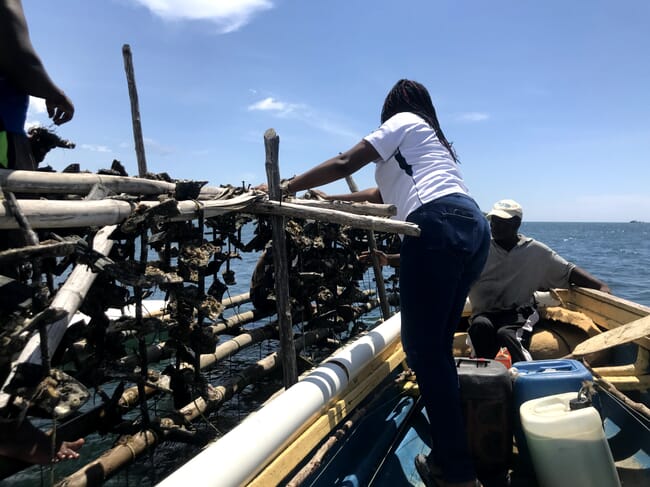
Gray was able to facilitate and re-energise the local oyster sector and established a new farm
What has been your greatest achievement working in aquaculture to date?
Throughout my career, I believe that I have played a critical role in the development of aquaculture in Jamaica and have made a significant contribution to projects such as species diversification.
After completing my master's degree, I returned to Jamaica to continue working for the Ministry of Agriculture and Fisheries, with a focus on mariculture. This was very important to me because I felt that Jamaica was not sufficiently capitalising on the blue economy and blue foods, although the country is aptly situated right in the Caribbean Sea.
With the assistance of funding received for climate-resilient projects in coastal communities, I was able to facilitate and re-energise the oyster sector through capacity building with stakeholders and conducted technical workshops with communities in two parishes on how and what is needed to set up a successful oyster farm.
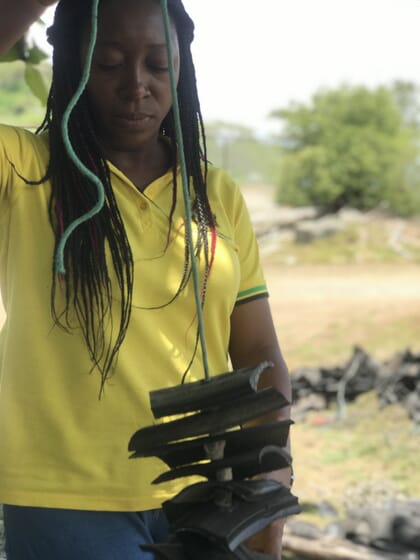
Gray created a licensing and permit guideline for seaweed and finfish cage culture as well as seaweed production trials
To meet the increase in demand for seedstock for the communities, I worked to update and expand the government's hatchery facility. Cultured seedstock from the hatchery was delivered to the community group for grow-out. This group was able to market their oysters at a national agriculture expo and monthly to a premier hotel. Throughout this process, I had to engage and work with a team of divers, trainers, technicians and sociologists to conduct site assessments and train members on the construction of an oyster farm.
As it is the Jamaican government's policy is to reduce the fishing pressure by diverting some of the reef fishers into mariculture activities, another of my responsibilities was to develop an exploratory seaweed aquaculture framework. I created a licensing/permit guideline for seaweed and finfish cage culture as well as seaweed production trials. I feel very excited about this work and it is probably among some of my greatest achievements. I also led a team that successfully reproduced Collosoma or giant pacu, a non-native species with aquaculture potential and I was instrumental in developing the curriculum and training numerous freshwater ornamental and tilapia farmers.
What advice would you give to women looking to start a career in the sector
I would say GO FOR IT! There are many opportunities available. It is a promising time and we need more women in the field, especially in the Caribbean.
What would be your dream role in aquaculture?
I have a desire to work in academia and conduct industry-relevant research. In the future I would like to work with international organisations as a consultant, providing services for countries in need of my expertise.
-
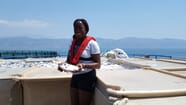
Gray harvesting fish in Jamaica -
![]()
Constructing an oyster rack and training farmers -
![]()
Gray carrying out lab research -
![]()
Gray conducting a technical meeting at a fish farm in Jamaica -
![]()
Gray hosting a training session with new farmers

